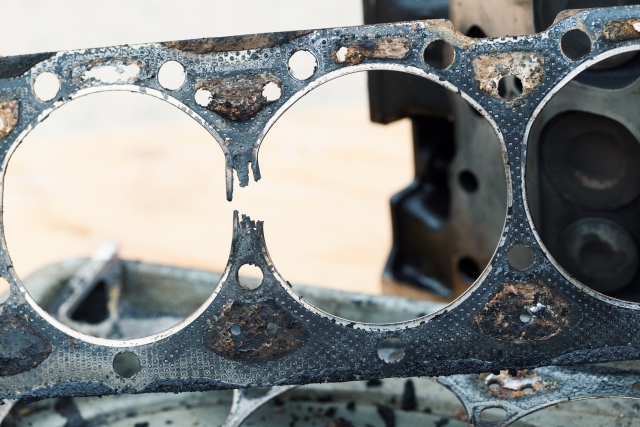One of the most in-demand call outs for tow truck Perth drivers is from motorists who have broken down due to a blown head gasket. Hearing this diagnosis for their vehicle is news every driver dreads, not only because it can be hard to pinpoint why it has happened, but also because of the high repair bills involved. However, by understanding the causes of blown gaskets, drivers can take steps to make sure this expensive and annoying problem is less likely to happen to them.
What is a Head Gasket?
Your car’s head gasket is the gasket in between your car’s engine block and cylinder head. It forms part of the combustion chamber and allows coolant to flow efficiently outside of the combustion chamber between the engine block and the cylinder head. This means it’s designed to perform a crucial task; keeping intake air and combustion gases in the cylinder while keeping coolant out of the cylinder. Put simply, any gasket’s job is to keep a fluid or gas either in or out where two parts of a machine come together. For example, your front door has weather sealant around the doorjamb. This weather sealant could be described as a gasket to designed to keep draughty outside air out and ambient clean air inside your home.

What causes a Blown Head Gasket?
Whatever the reason your head gasket has blown, when it happens, the first question you ask yourself and your mechanic is, ‘why has this happened?’. A head gasket can blow or fail for a variety of reasons but an overheating engine is by far the most common cause. Other possible culprits are early ignition (sometimes called knocking or pre-ignition), an abnormally high compression ratio or in the case of an engine with forced induction or high intake manifold pressure. Carbon build-up is also an issue that can lead to trouble in the shape of a blown head gasket.
Why are Head Gaskets Vulnerable?
Head gaskets are prone to problems because their very function means they are constantly subjected to extremely high and fluctuating temperatures. Constantly holding back the pressure in the intake vacuum and combustion explosion while simultaneously keeping the engine coolant out under these changing temperatures is a demanding task for your gasket and unfortunately the fluctuating heat generated is usually behind a blown head gasket. Modern head gaskets are designed to withstand these demands but if for any reason this pressure becomes higher than it should be, a blown head gasket becomes a strong possibility. This is because abnormally high temperatures can cause the metal components in the engine to expand and contract at different rates resulting in the metal parts moving in relationship to each other and causing leaks in the head gasket. Expansion due to excessive heat can also cause warping in engine parts, as they can’t expand where they are bolted together so they warp between the bolts. This problem is a one-way road to a leak and a big repair bill. Also, due to the design of the cylinder heads and the position of the cylinders, valves and other components, there can only be a small number of bolts to perform the crucial task of keeping the head gasket sealed and flat and securing the cylinder head to the block. Having so few bolts may be necessary, but it can cause stress on the head gasket as it expands due to heat and other pressure.

How Can I Stop My Head Gasket from Blowing Due to High Temperatures?
There are never any guarantees that you won’t come up against problems with your car’s engine in the course of day-to-day driving, but there are some steps you can take to try to mitigate the risk of the high bills and the huge inconvenience that are part and parcel of a blown head gasket. To prevent dangerously high levels of heat in your engine, it’s vital to ensure your cooling system is functioning properly by keeping it topped up using the appropriate solution according to the manufacturer’s instructions. It’s also important to keep an eye on your car’s temperature gauge, particularly during periods of heavy engine load.
What Other Precautions Can I Take?
Early ignition or knocking can be prevented by ensuring that your car has a clean fuel system and that your ignition timing is always set according to the manufacturer’s recommended set point. When it comes to carbon build-up, problems arise when this build up increases your vehicles compression ratios. There are fuel system cleaning products widely available to remove potentially harmful carbon deposits from your car’s engine. If you are the owner of a supercharged or turbocharged car with forced induction, it’s crucial to make sure the pressure-limiting mechanism such as the waste gate or bypass valve is correctly connected and to watch out for higher than normal boost levels as they can cause excessive cylinder pressures. And remember to listen for noises and check your water pump pulley at the front of your engine to make sure it hasn’t come loose. Also, it’s not proven, but some drivers believe that avoiding downshifting in a car with manual transmission can help.
What do I do if my Head Gasket Blows?
Despite our best efforts, sometimes we are just unlucky and end up with a major mechanical fault like a blown head gasket. Before you call your mechanic, you could always try using a head gasket-sealing product to see if that will fix the leak in your head gasket without spending a fortune. However, if you are in doubt, it’s always best to leave this crucial repair job in the hands of a mechanic you trust.
Breaking down is stressful, whatever the reason and particularly if it happens in busy traffic. For a reliable towing service in the Perth area, you can trust Executive Towing Services to get you and your car back on the road to safety.